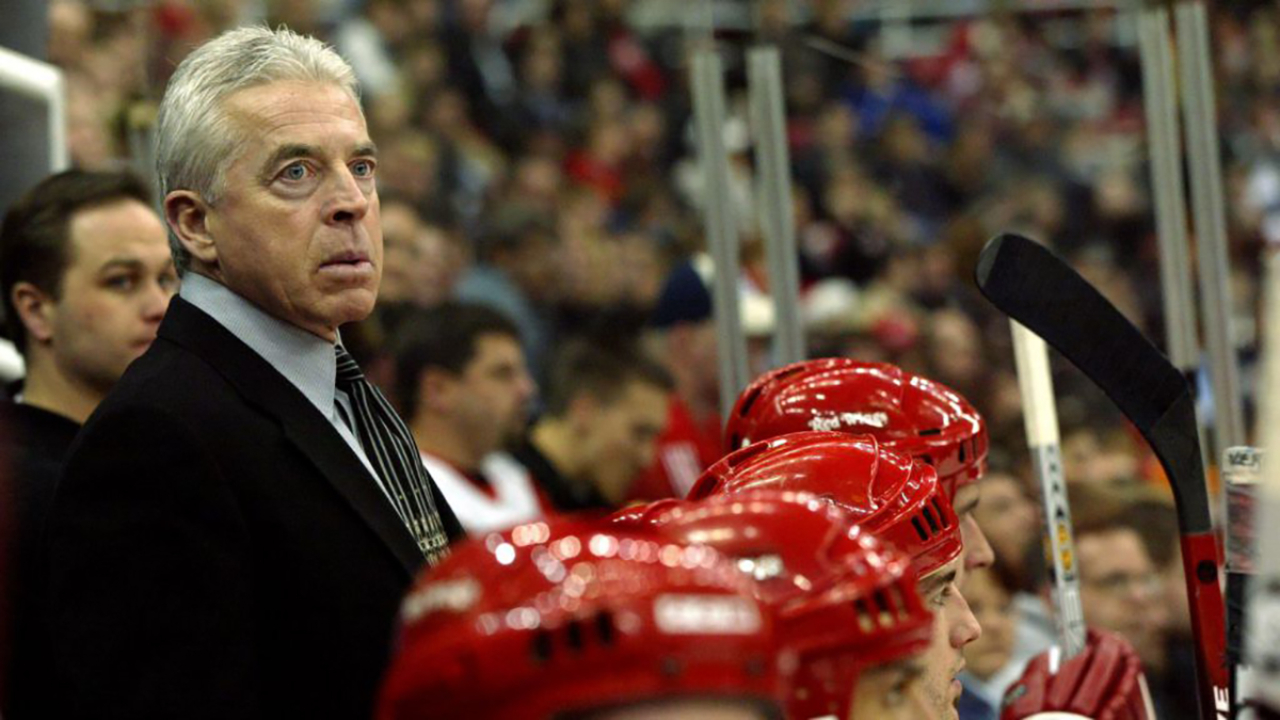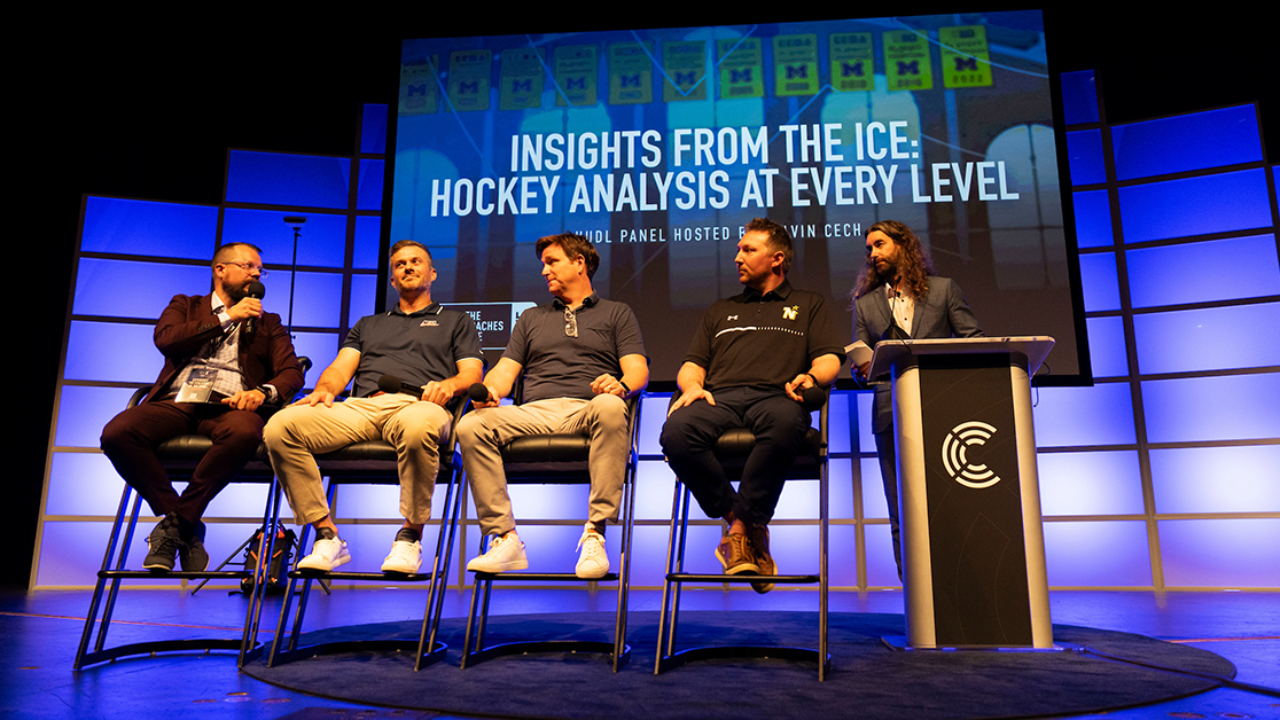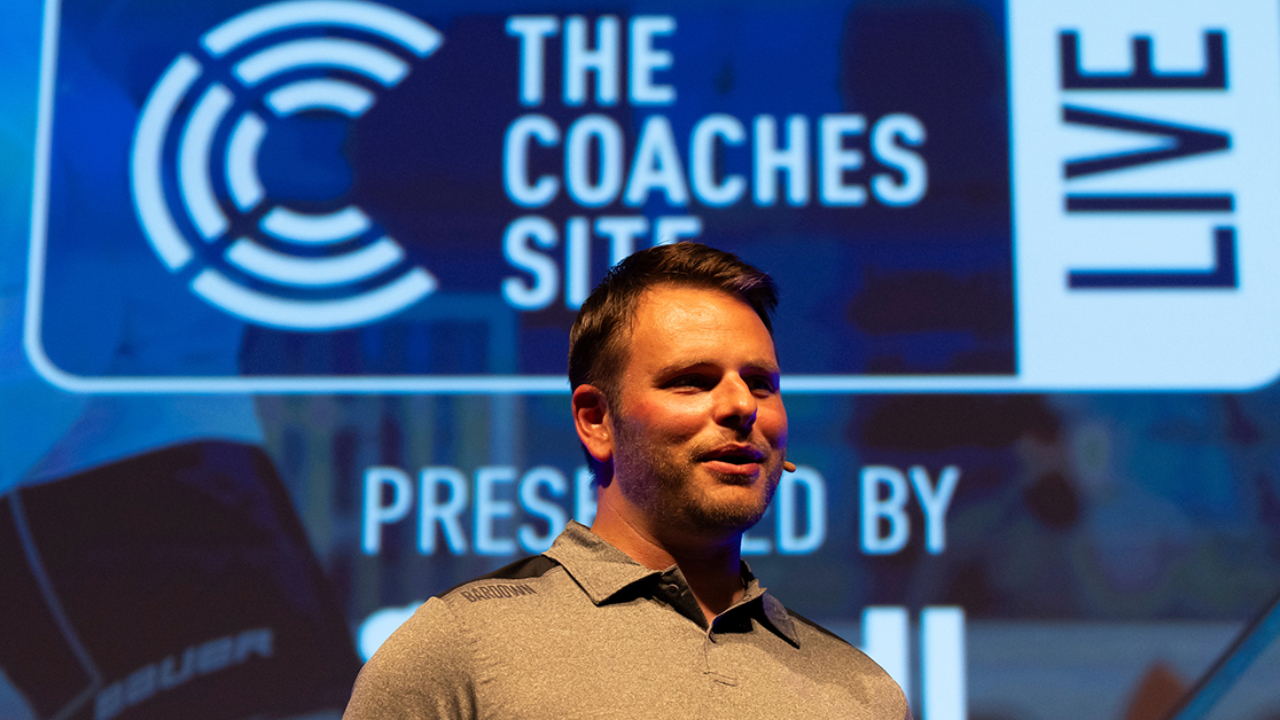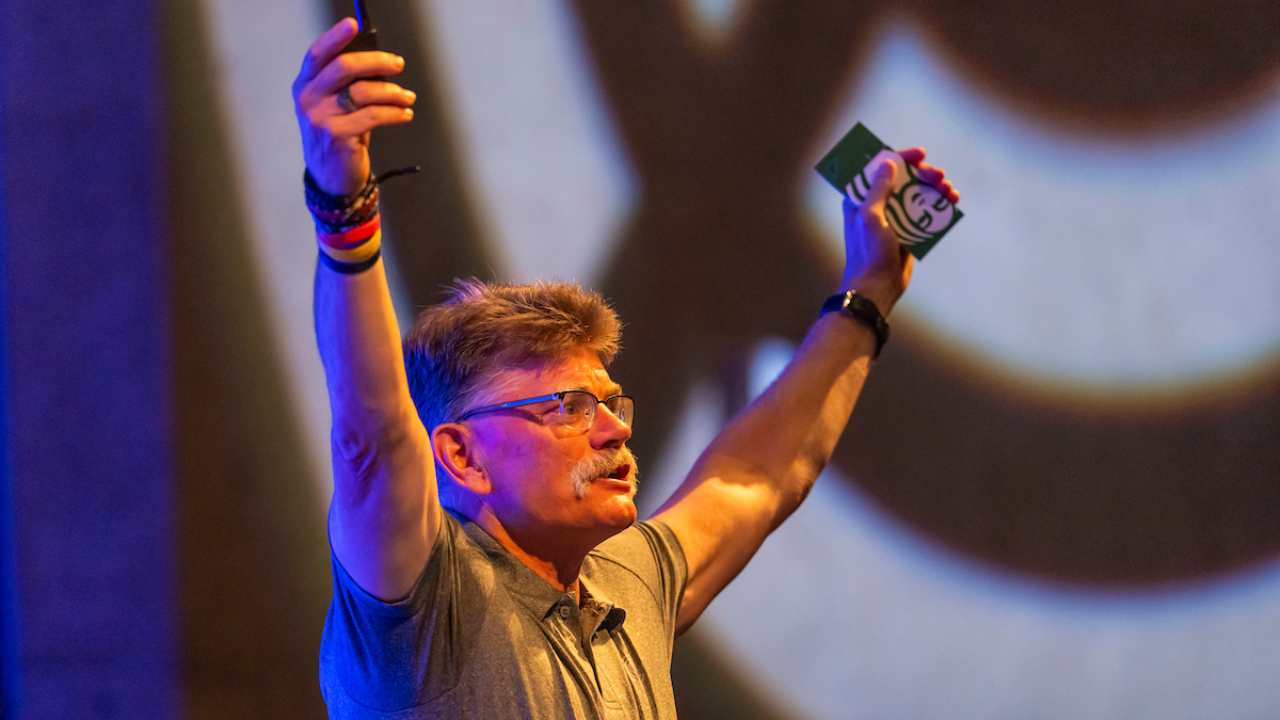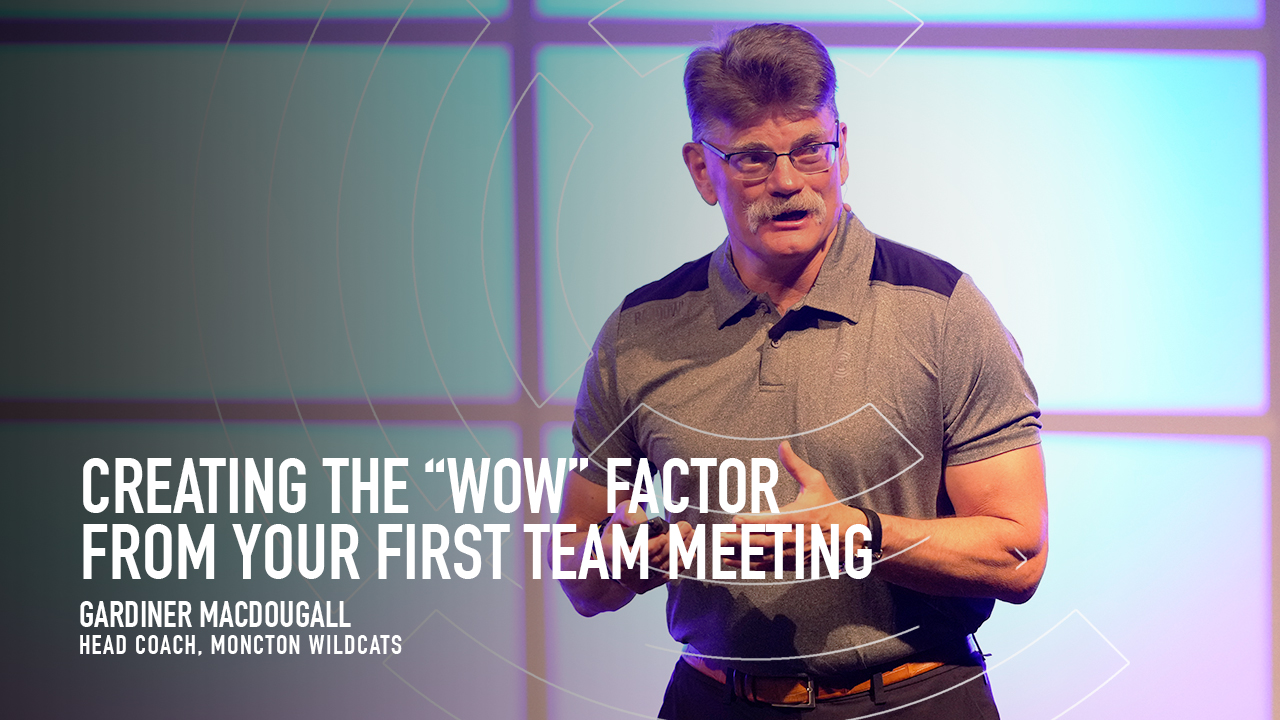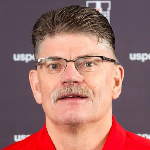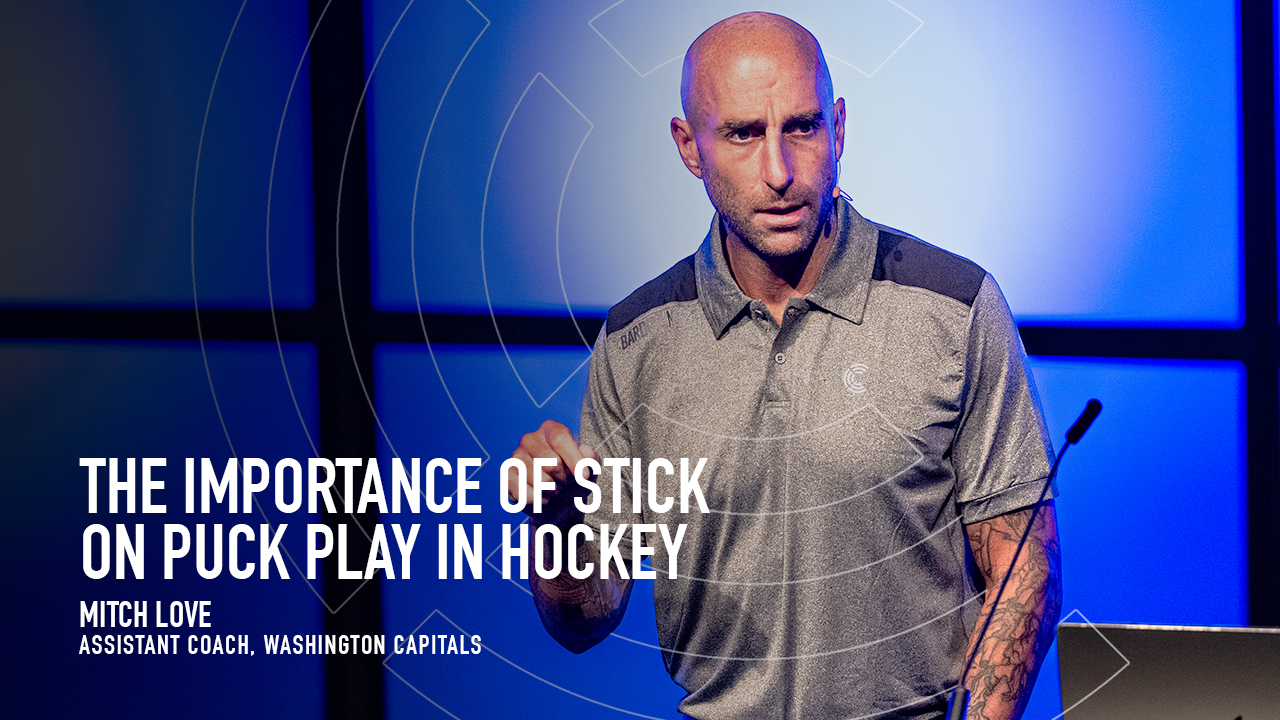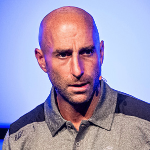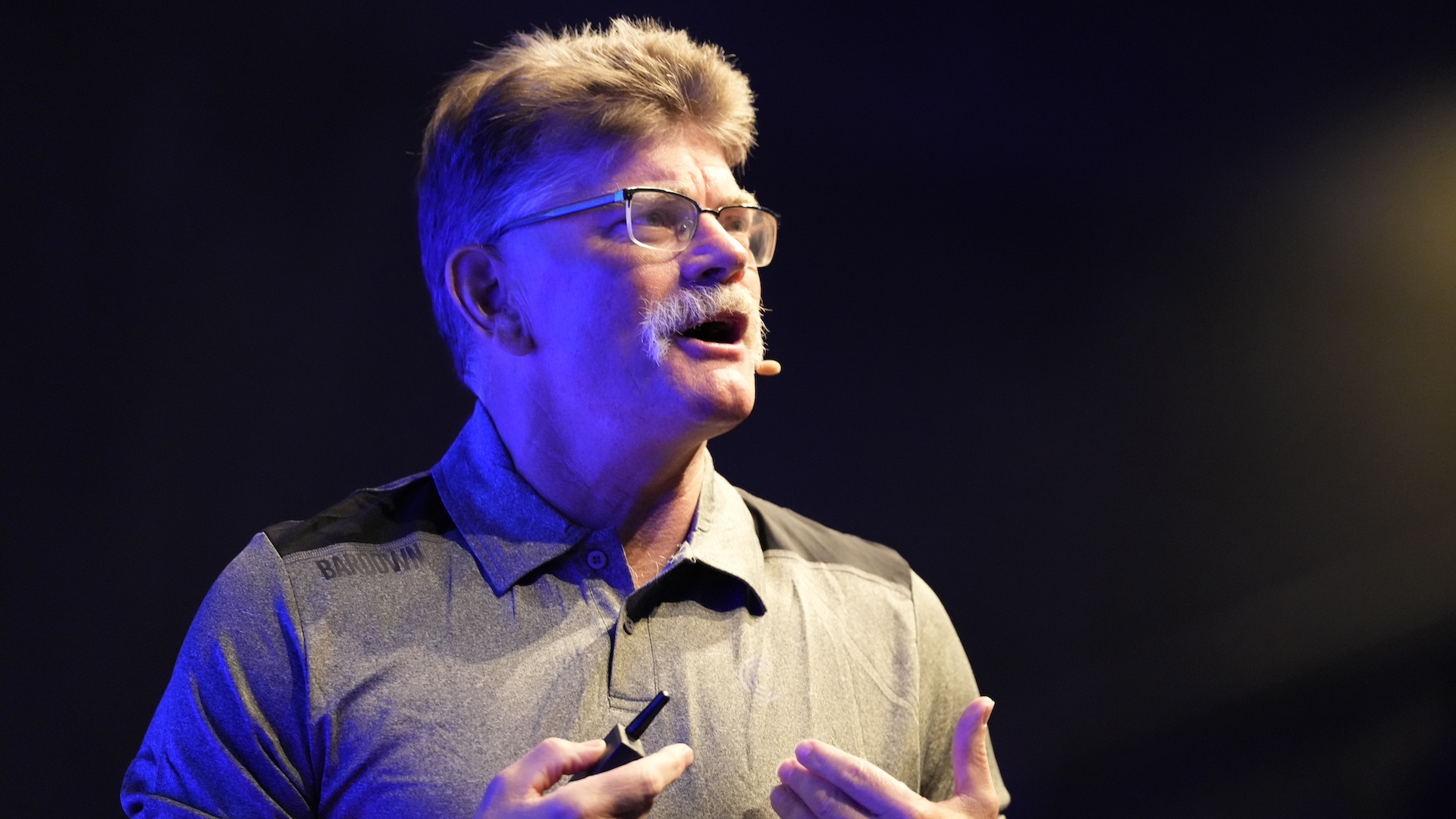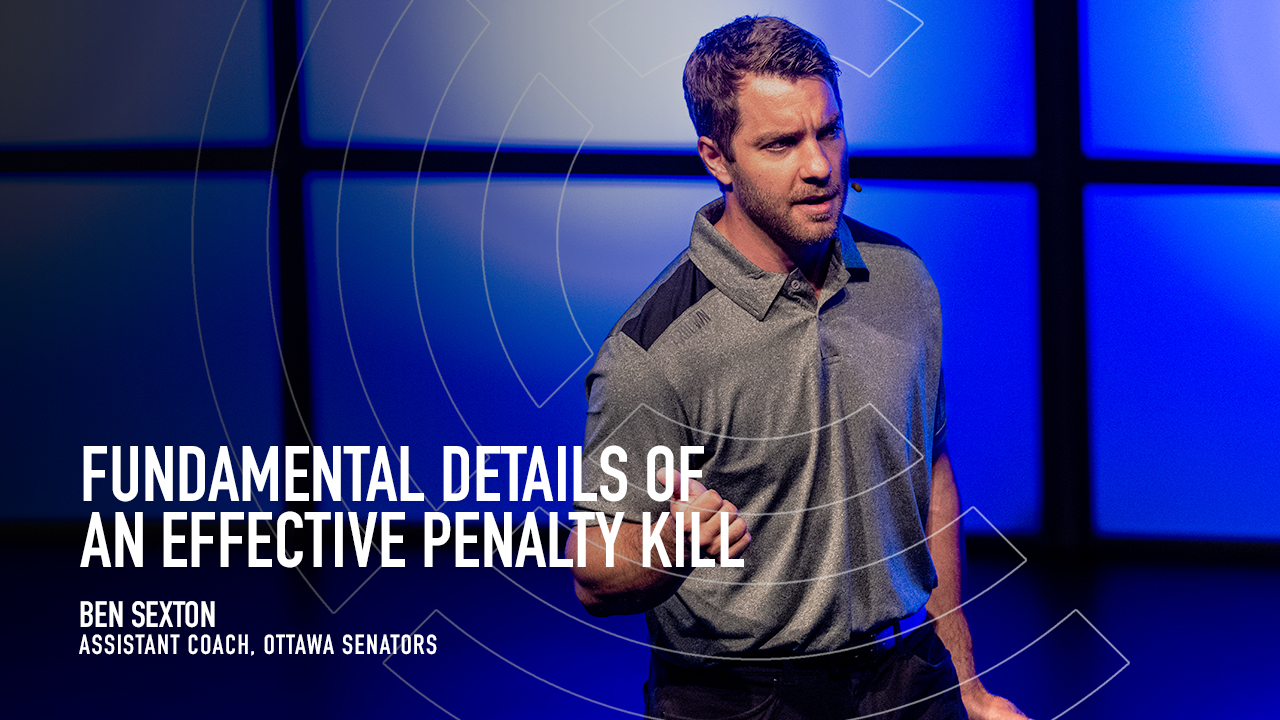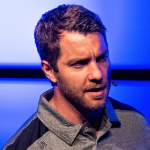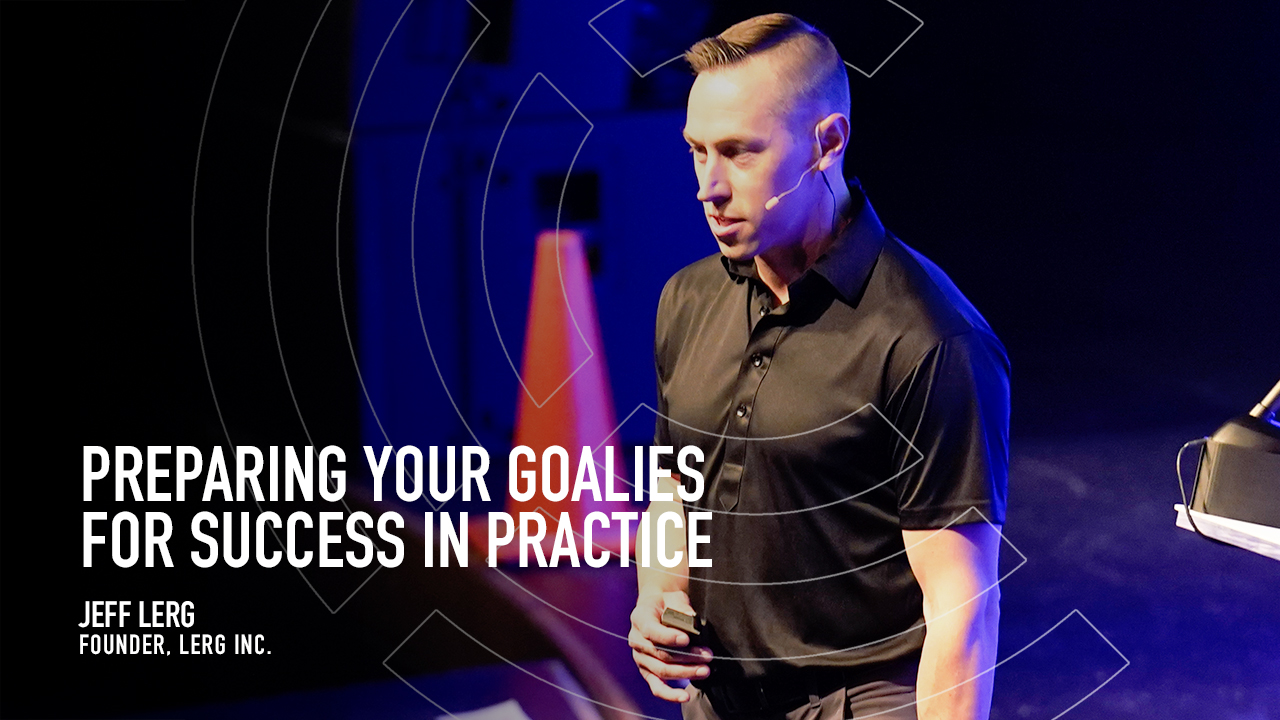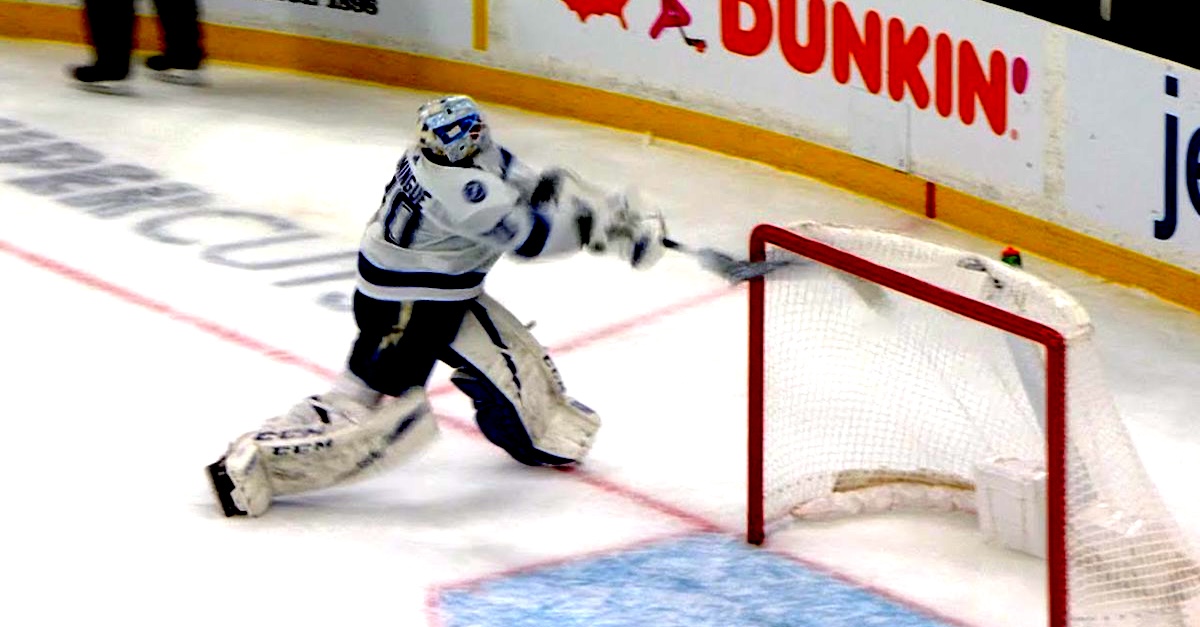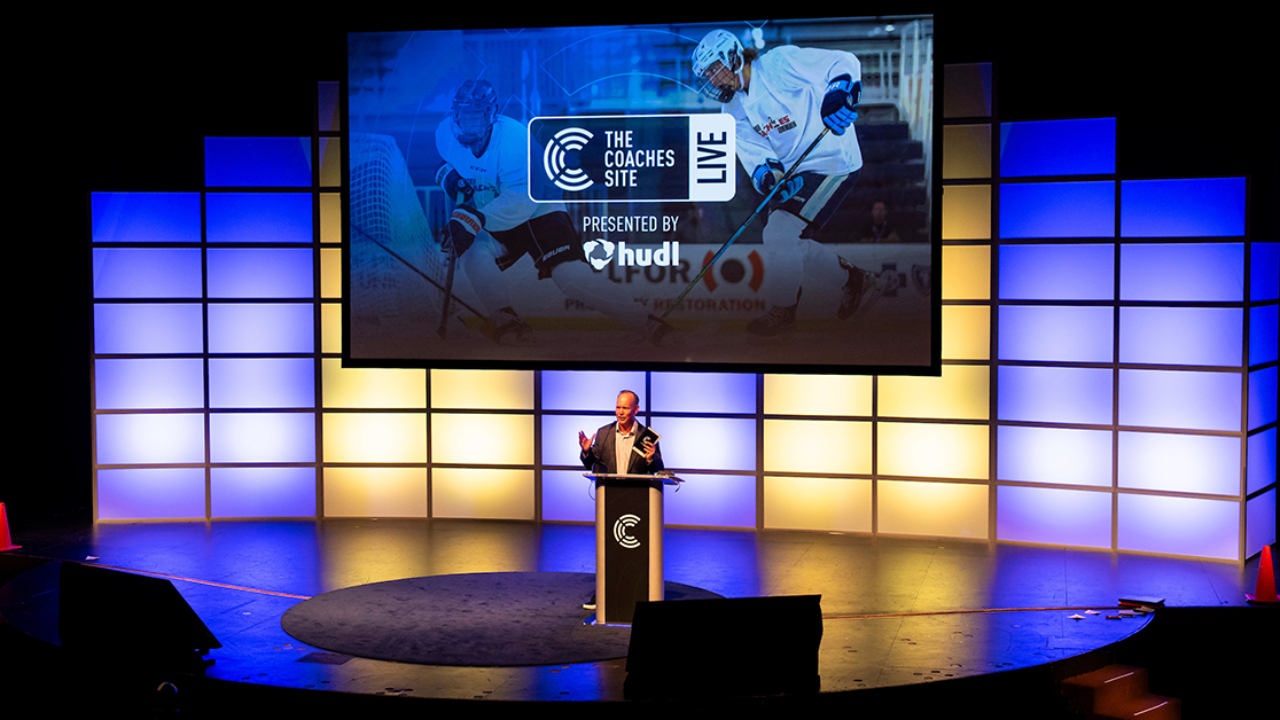
TCS Live, Hockey’s Premier Coaching Conference, kicked off Thursday in Ann Arbor, Michigan, at the University of Michigan.
The eight presenters who took the stage all focused on something unique and left coaches with a notebook full of learnings. These presentations will be released starting this fall to members of The Coaches Site. Until then, here’s a sample of the goods:
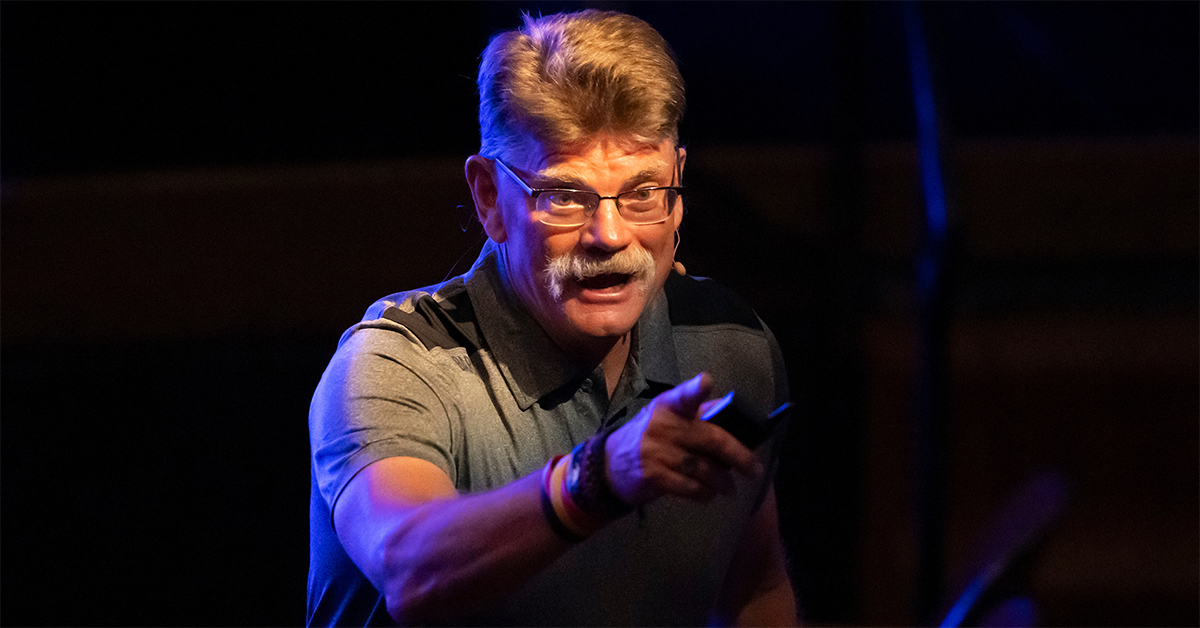
Gardiner MacDougall
It is no secret that the key to Gardiner MacDougall’s remarkable coaching success is his high energy and passion and he brought all of it to kick off TCS Live 2024.
MacDougall stressed the most important part of the season as a coach is at the beginning; at the very first team meeting. As a coach, this is your opportunity to set the standard and lay out the plan for the season. MacDougall always starts with the end in mind at this first meeting. He will often show a video of previous success that his teams have experienced. From there, MacDougall will shift into what needs to be accomplished on a day-to-day basis in order to achieve success. MacDougall emphasizes that players don’t care about the past year; it's all about today and what can be accomplished this season. As a coach you can’t change what was done yesterday, but you can show up today and find a way to get better every single day.
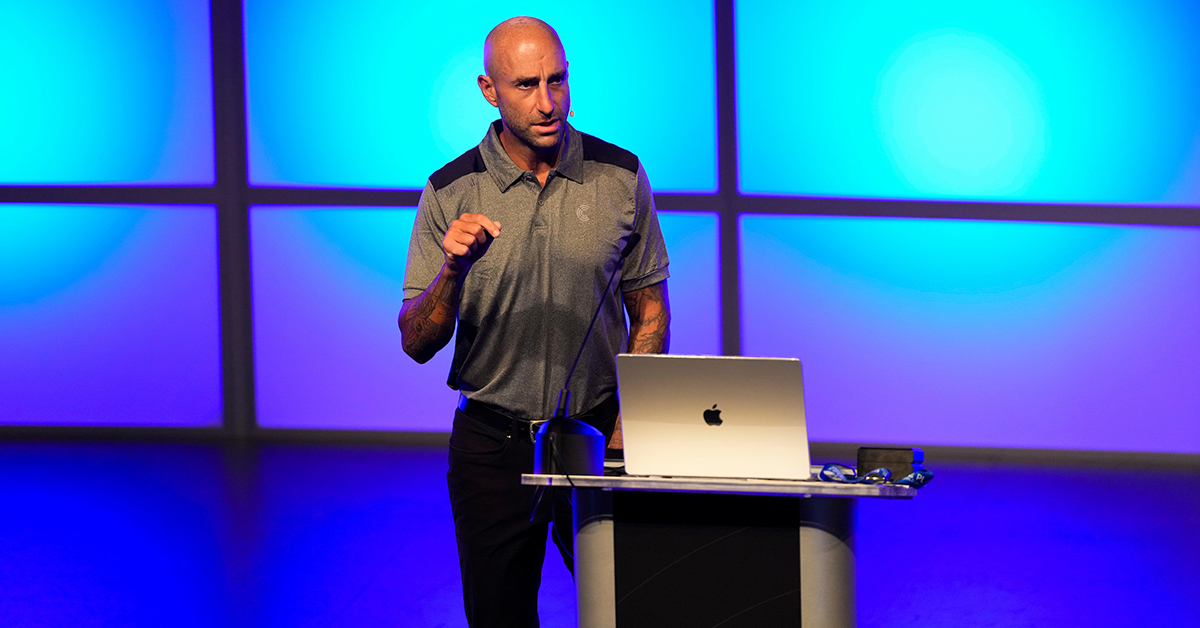
Mitch Love
As the Defence Coach for the Washington Capitals, Mitch Love knows all about the proper technique to stop many of the NHL’s best players. At TCS Live, Love went into great detail about the importance of stick on puck play.
There are many aspects that make a player great, one of which is their stick play. Having a controlled or as Love puts it, a calm stick, is a great asset to a player’s game. Nothing drives coaches crazier than lazy penalties that can steal away moments of a game. This is why Love invests time with Washington's Defensemen, guiding them to lead with their stick and have good posture to be able to reload and get on the attack when turnovers are created. It is important for players to get their stick right on the opposition's stick blade where the puck is. Trying to go higher up on an opponent's stick can cause penalty-prone moments due to lazy stick infractions. Having strong stick on puck play won't always result in the player being the one to directly get the puck, but it can force disruption and allow support players to gather the puck and reload up the ice.
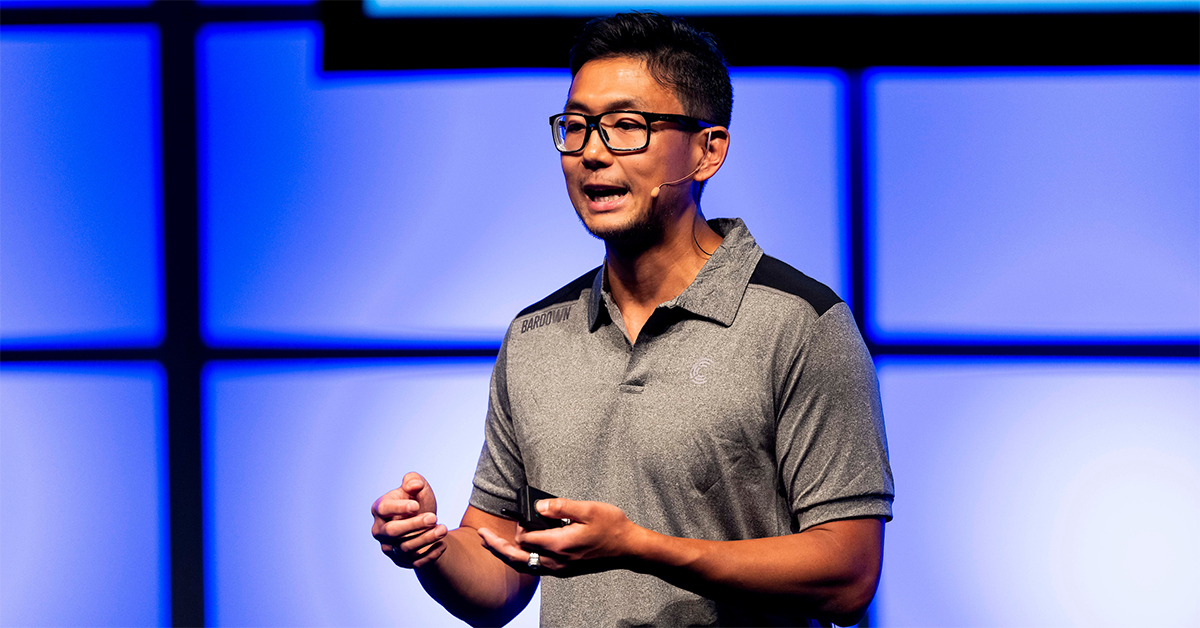
Jack Han
As a hockey consultant Jack Han has worked with many young hockey players and provides his intel at TCS Live on what makes a great player at the NHL level.
When working with a player, Han takes the time to evaluate the player’s game to discover what areas need improvement to lead to long-term success. To do this, Han looks at two areas when evaluating a specific area of a player’s game. These two areas are frequency and success rate. This allows Han to understand how many times this specific area of weakness is occurring in a game setting and how many times this area is leading to success. After using these two variables to identify a player's weakness Han looks to convert the weakness into a strength of the player. This helps improve the player’s weakness while also enforcing that specific strength, leading to a more well rounded player.
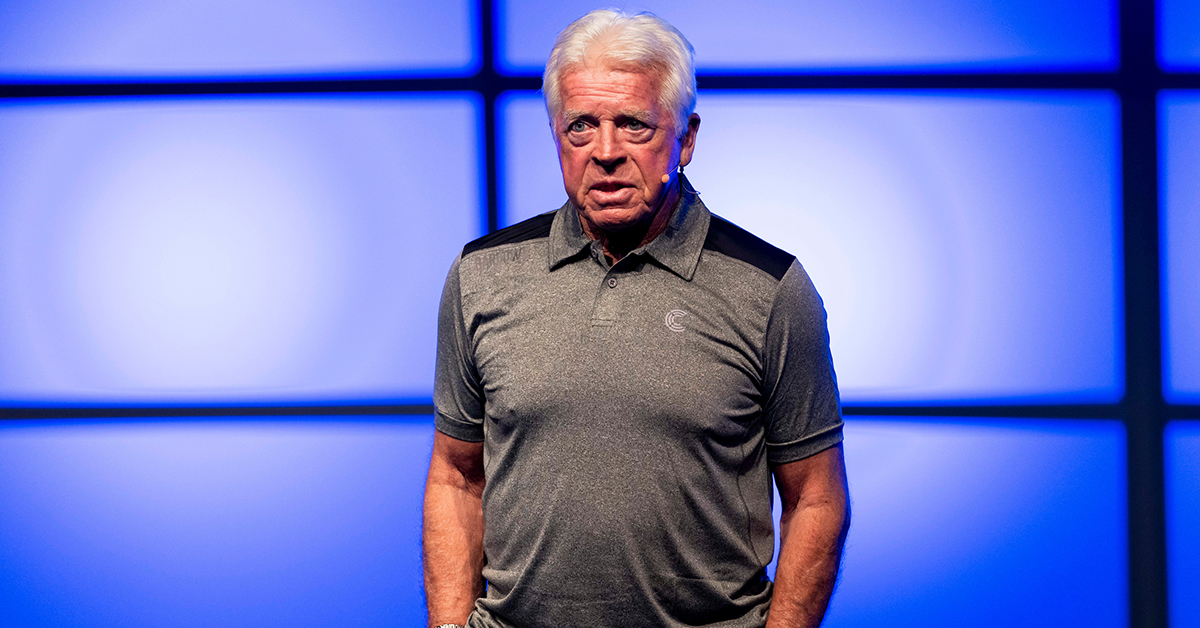
Barry Smith
Look on the Stanley Cup and you will see Barry Smith’s name on it seven times. With 20 years of NHL coaching experience, Smith still sees one area of practice lacking in many coaches’ plans which he shared at TCS Live.
Oftentimes people will say that the game of hockey is pretty simple; you are just trying to get the puck in the net using your team around you. This is not the case in Smith’s eyes however. Smith describes hockey as fast, chaotic, and messy with the puck going all over. This is why Smith places a strong emphasis on practicing transitional and positional play in practice. Hockey IQ and Hockey Sense is the biggest jump from each level according to Smith and being able to process the game is key to a player's success. Smith highlighted one of his former Detroit Red Wing players, Nicolas Lindstrom. He stated that every defenceman that played with Lindstrom had the best game, month, or season of their career because of his ability to process the game and put his defense partner in good situations.
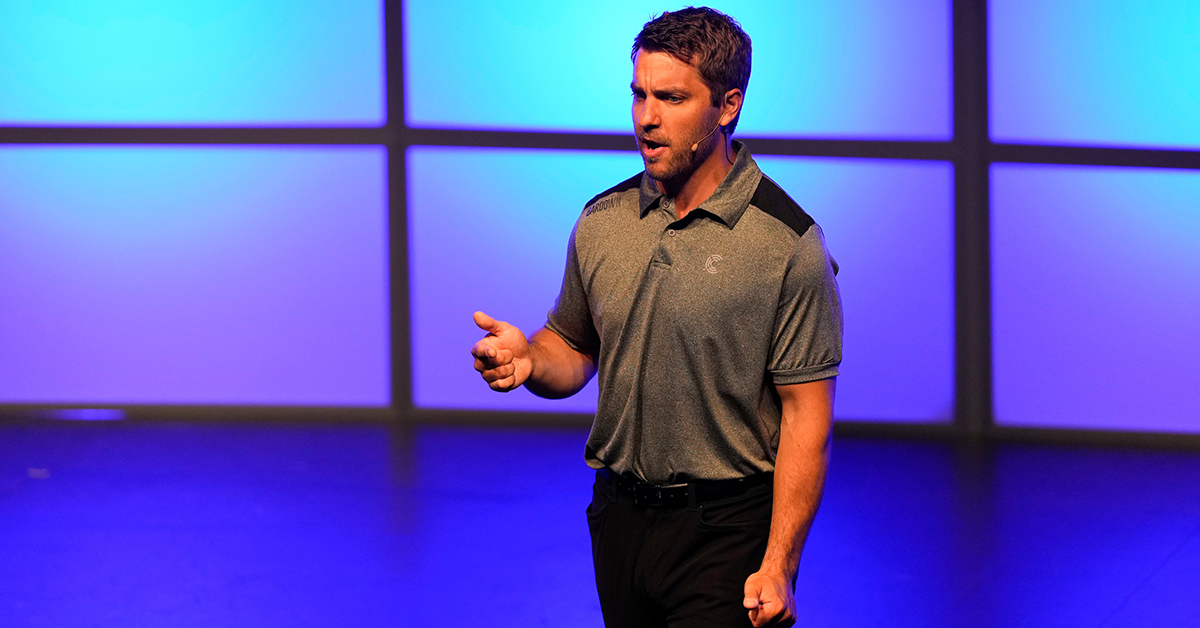
Ben Sexton
In his first season with the Ottawa Senators, Ben Sexton was responsible for the Penalty Kill which he provided an in-depth diagnosis of at TCS Live.
The first thing that Sexton requires on the PK is buy-in from his players. It is essential that the players on the ice for the PK are committed to the system in place.They have to be willing to make sacrifices such as blocking shots and getting in passing lanes. Sexton works on creating a system that leverages his players strengths. Sexton singled out Claude Grioux as a player he wanted to add to Ottawa’s penalty kill because of his elite ability to read plays while serving on the power play. This in turn allows Grioux to read plays effectively on the penalty kill. Sexton makes it a point that all four killers must be on the same page but also allow their instincts to take over and make smart decisions.
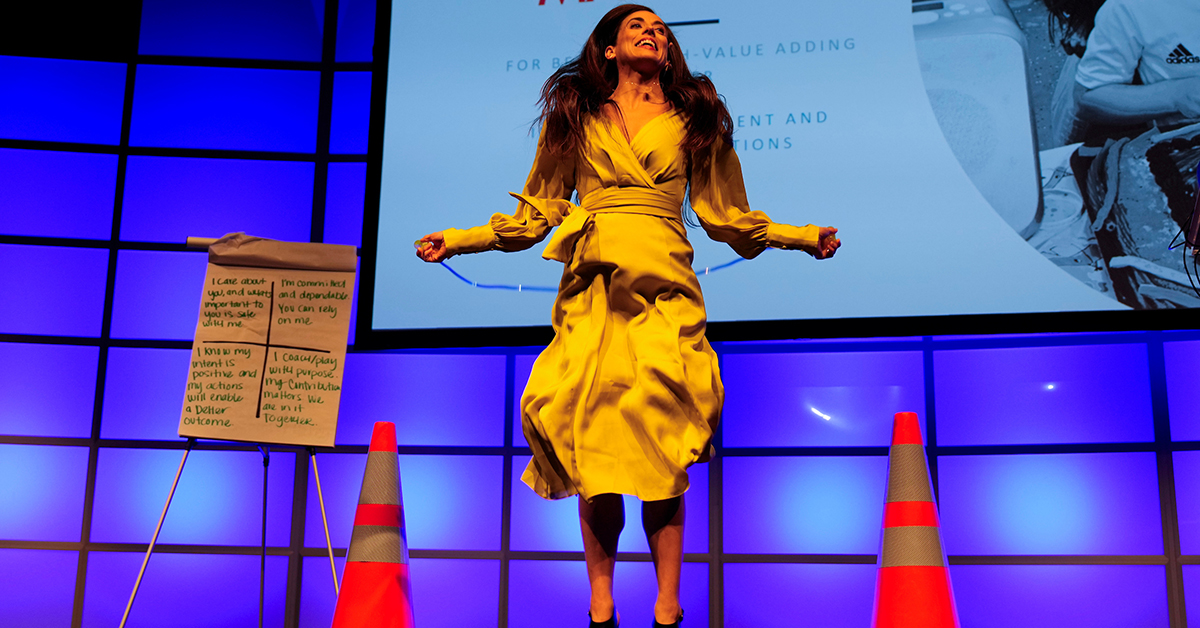
Amanda Blanck
As a performance coach to the top minds in music, sports, and business Amanda Blanck’s passion for developing elite decision-making skills was on full display at TCS Live.
Hockey is all about decision-making and the number one indicator to success is one's decision-making. Winning on the ice occurs because of winning off the ice as stated by Blanck and this is very true when it comes to being prepared to make smart decisions. Decision-making comes down to values and energy while in motion. Values are your belief system and energy is combustion of matter to enable movement. Energy is the thought and care that we choose to give to something we are passionate about. Ultimately, energy is focused in the areas where we have the strongest values which is how we make decisions. Blanck stressed that every decision falls into how you value people, tasks, and strategic abilities. As a coach and leader it is vital to be a catalyst for energy and get everyone to focus on putting their energy to the right values. Blanck encourages all coaches to strive for strength and balance between people, tasks, and strategic abilities to be a strong decision maker.
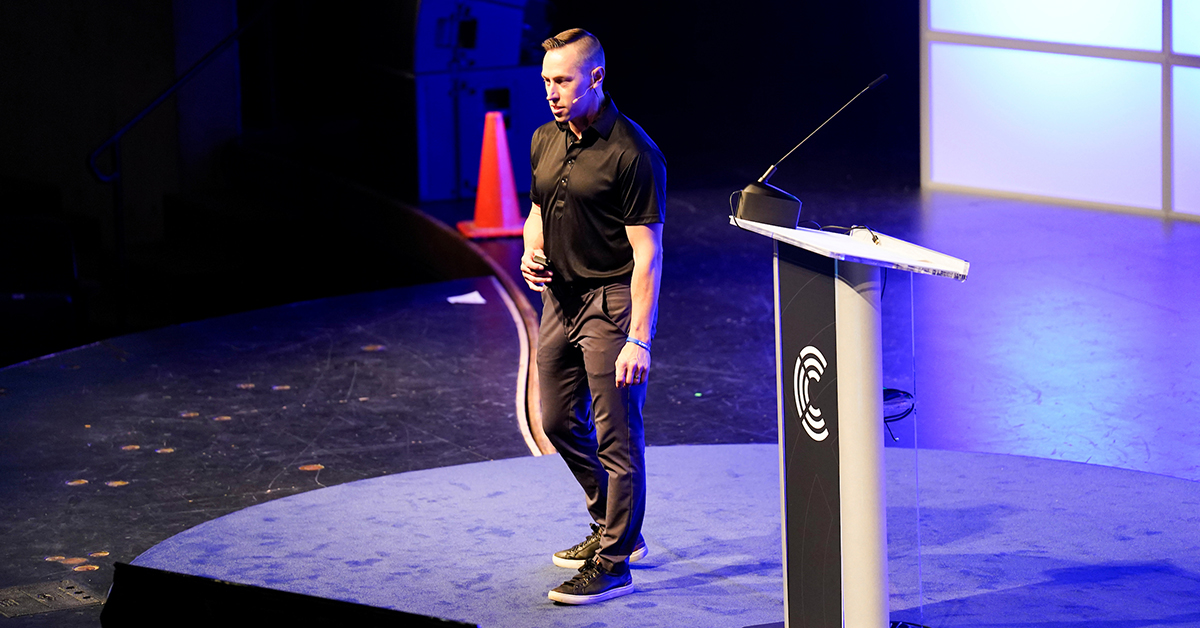
Jeff Lerg
As a former Athletic and All Academic Goaltender for Michigan State University, Jeff Lerg knows exactly what a goalie needs to be successful in practice as he shared it all at TCS Live.
Curious to gain the perspective of how goalies prefer to start practice, Lerg conducted a survey with 153 goalies. After asking how the goalies liked to start practice, Lerg discovered that 80% of the goalie participants said that they wanted goalie specific warm up drills where they get to touch the puck and get their reads in before jumping into a full team drill. When asked when goalies preferred to do a small area game, 73% answered at the end of practice. Lerg emphasized that goalies are often in their own bubble in practice and are not always accounted for in what they need to be successful.
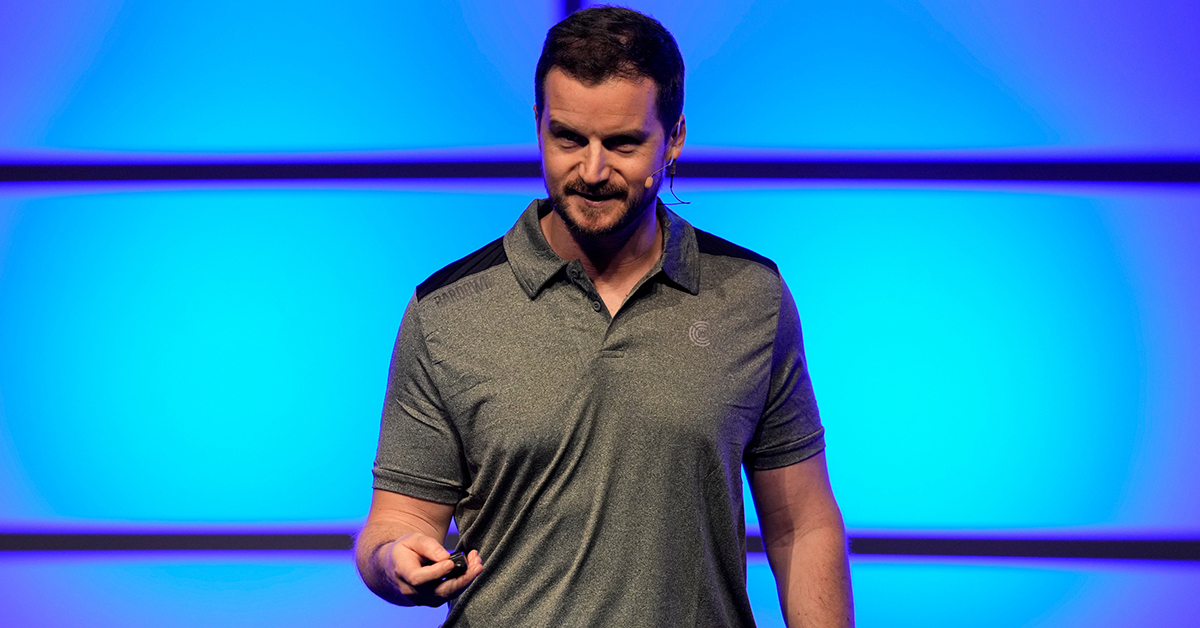
Cody Royle
There are few people that are around coaches as much as Cody Royle is. With his experience as the Coach of Head Coaches, Royle provides tremendous insight into the importance of coaches being willing to be coached themselves at TCS Live.
A key message that Royle provided to all members at TCS Live is to be the greatest source of competitive advantage you can offer to your team. Oftentimes, this is not possible for coaches because of the immense stress they are under. Royle introduced a survey that was conducted that revealed that many coaches struggle with their mental health, but aren’t able to talk about their mental health because they know they might not be able to get another job. Coaches often experience signs that show they are mentally exhausted everyday which impacts their ability to coach. The worst part about this is that players are able to recognize their coach’s fatigue and then perceive their coaches as less effective and competent. Ultimately, a coach's entire focus and devotion to their team can often lead them to being the one to hurt the team. Royle urges the need for a system that doesn’t see 35 year old coaches burned out.

